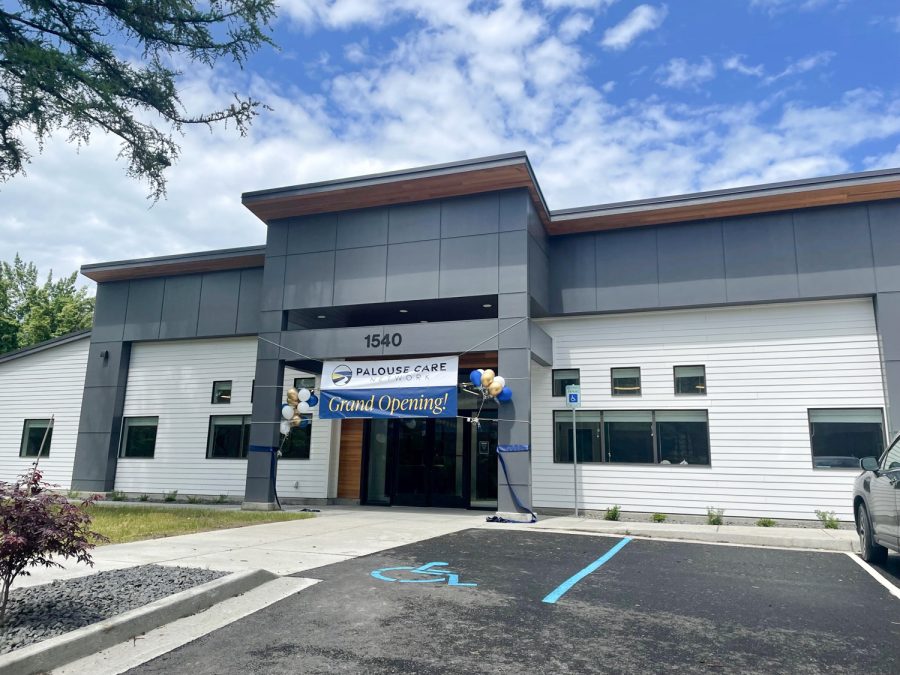Planned Parenthood says Palouse Care Network is untrustworthy
PCN does not offer abortions, referrals for abortions; Planned Parenthood recounts patient complaints from PCN
Palouse Care Network held its grand opening in Pullman on June 18.
June 23, 2022
Editor’s Note: A previous article has been published containing more details about Palouse Care Network.
When Palouse Care Network opened its second location in Pullman near WSU on Monday, Planned Parenthood became concerned for community members’ access to accurate information on abortion care.
Although PCN, a faith-based organization associated with WISH Medical, offers ultrasounds, post-abortion treatment and information about unplanned pregnancies, the clinic does not provide abortions itself or refer patients to organizations that do, said PCN CEO Amy McNelly.
“We really believe in the dignity of every human life, and that means at whatever age or race or ability level or socio-economic level,” McNelly said. “Abortions aren’t something that we’re going to be actively promoting because of that.”
PCN tells patients they can always come back to the clinic, no matter the decision they make regarding their pregnancy, she said.
“What lines up with our faith is to give people accurate information to make sure that they’re in a safe environment where … they’re aware of the resources that are available to them,” McNelly said.
McNelly stated PCN is a reliable resource for everyone in the community. However, the clinic and similar religion-based organizations provide false information about abortions, said Paul Dillon, Planned Parenthood of Greater Washington in North Idaho vice president of public affairs.
Dillon said PCN is one of many crisis pregnancy centers trying to move near university students with the intention of spreading misinformation and manipulating clients about their options.
“We see patients who have left the Palouse Care Network often, and they relay stories of coercion, misinformation, lies that they’ve been told from these crisis pregnancy centers,” he said.
Planned Parenthood received a patient who went to one of the clinics PCN resembles and said the clinic would not let her leave until she named her child after a positive pregnancy test, Dillon said.
Dillon said that situation is wrong, unethical and dangerous.
It is important for patients to have honest and accurate information about pregnancy and abortion, Dillon said. Although PCN provides ultrasounds, it often misleads patients about how far along they are in a pregnancy, he said.
“There’s so much confusion out there, and crisis pregnancy centers too often are the ones that are providing a lot of this information,” he said.
Crisis centers like PCN also try to move as close to Planned Parenthood locations as possible, and Planned Parenthood has received multiple complaints from clients about these clinics, he said.
“They call themselves a women’s health clinic,” Dillon said. “They’re using language to try and deceive you to try and use a lot of the language that healthcare organizations use.”
With the Supreme Court decision on Roe v. Wade coming up in the next few days, Planned Parenthood expects to see a lot more patients, especially from Idaho, he said.
Dillon said the organization will always be there for people with questions, especially students who have had negative experiences with crisis clinics like PCN.
Planned Parenthood will continue to provide honest education and high-quality, compassionate healthcare, he said.










